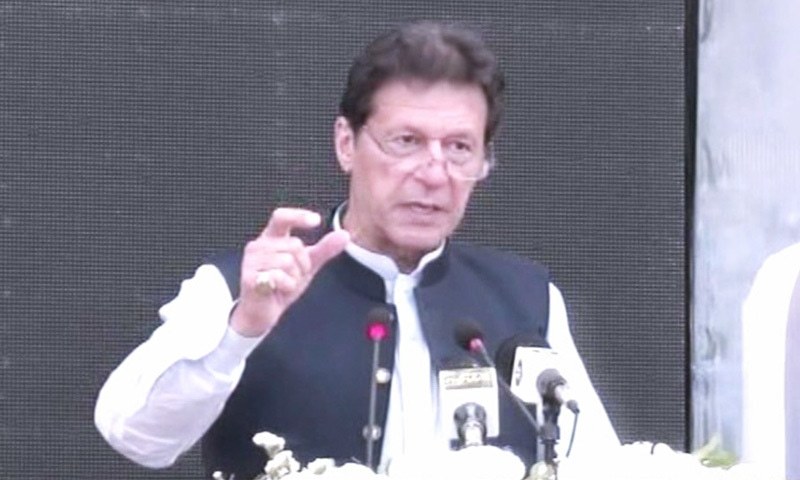Prime Minister Imran Khan on Monday shared that he is considering "talking to insurgents" in Balochistan, saying that the government would never have had to worry about insurgency in the province if attention had been paid to its development.
He made the comments while addressing a gathering of local elders, students and business leaders in Gwadar during a one-day visit to the city. The premier said that he had always thought that when the PTI came to power, the government would pay attention to Balochistan because when the province progressed and there was peace, Balochistan's people would "understand that Pakistan is also theirs and say 'we should also fight for it because it thinks of our basic needs and problems'".
He said that if development work had been carried out in the province, "we would never have had to worry about insurgents."
"It may be that they had grievances in the old times and may have been used by other countries ... India may have used them to spread chaos but the situation [now] is not the same," he added.
The prime minister said that even though the economic situation of the country was better, it was still not good enough that the government could give "so much money" to Balochistan from the funds allocated for federal public sector development projects (PSDP).
"But we have given the biggest package to Balochistan because we believe that justice has indeed not been done with the people of Balochistan; they have been left behind."
He added that the "Centre did not do justice with Balochistan and neither did its politicians." The money that was supposed to be spent on the development of the province was spent by the politicians on themselves, he said.
"The sense of deprivation that started spreading in Balochistan, it would never have spread if the politicians in Balochistan had spent money in the right way."
Sharing projects the federal government was initiating in Gwadar, the prime minister said that efforts were being made to set up a desalination plant in the city as soon as possible. In addition, a 300-bed teaching hospital would also be built, he said.
He also shared that the government had imposed a complete ban on the entry of foreign fishing trawlers in Pakistan's waters in order to protect local fishermen who he said had been working for decades and were now seeing their livelihoods reduced.
The premier said he was specifically "talking about Chinese trawlers", adding that the Chinese government "would not think bad [because] we have very good relations". He assured the fishermen, "we will give full protection."
He said that out of a total allocation of Rs10 billion for the Kamyab Jawan programme in the province, Rs5bn had been spent on upgrading fishing boats and other equipment.
Equal progress
At the outset of his speech, the premier lamented that previous governments had not paid attention to Balochistan, saying that the "reason could be found in the parliamentary democracy system in Pakistan".
"If I too became the prime minister and my only purpose is to win the election and I do everything for that, I too will not pay attention to Balochistan because I cannot win the election from Balochistan.
"I would think that instead of visiting Balochistan, why don't I go to London to spend my summers and shop from Harrods? I would have earned money from corruption with great difficulty, why should I not spend it in London?" he said in an apparent reference to former prime minister Nawaz Sharif.
The premier said that Nawaz had made 24 trips to London during his tenure, of which 23 were private trips and only one was an official visit. "I think he didn't come to Balochistan even two times."
He added that former president Asif Ali Zardari had made 81 trips to Dubai during his tenure, saying "the purposes of those because of whom Pakistan did not reach the position it should have were different."
"If someone thinks of Pakistan, he will definitely think of Balochistan. If somebody thinks of election, he will think that there are more National Assembly seats in just Faisalabad division than in [the whole of] Balochistan so he should only pay attention to that."
Prime Minister Imran said it was the "misfortune" of those politicians because they did not realise if they had paid attention to the whole of Pakistan, "they would still be the prime minister today."
He noted that a country could only progress if all its areas progressed, adding "it cannot happen that a small area rises and the others don't."
The premier said every area had its advantages, pointing out that Balochistan had the most mineral resources, Punjab was a bread basket because of its wheat production, Karachi was the financial capital and the northern areas and Khyber Pakhtunkhwa were tourist hubs.
"How does a country rise? When it combines the different advantages of different areas, it rises," he said.














































